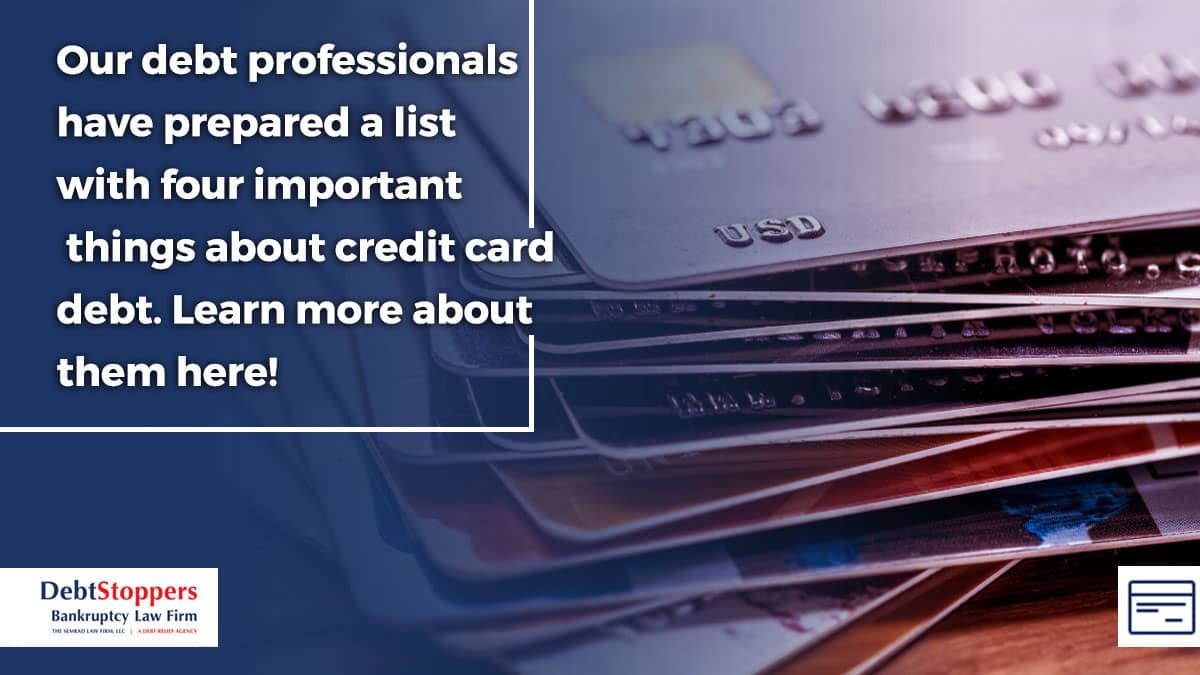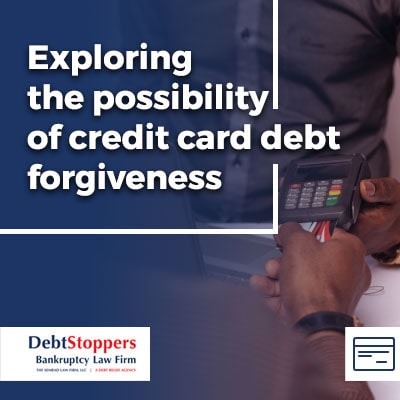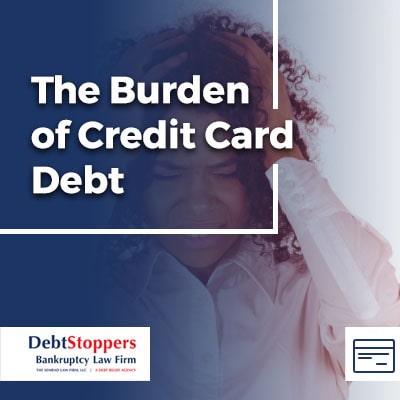Navigating Credit Card Debt: Understanding the Power of Debt Forgiveness and Bankruptcy

For the first time in history, American households are carrying over $1 trillion in credit card debt. As if this figure isn't alarming enough, the average interest rate has escalated to 24%, the highest it has been in over three and a half decades. Amidst such an economic crisis, it's crucial for individuals to fully understand their options, notably credit card debt forgiveness and bankruptcy.
The Burden of Credit Card Debt
The typical American household is now saddled with over $10,000 in credit card debt. At a payment rate of $250 per month and an average interest rate of 24%, it would not be until after 2030 that such a balance could be paid off entirely. This scenario assumes, of course, that the credit card would not be used again, which is unlikely for most people. Thus, the cycle of credit card debt continues, growing ever more daunting for those trapped within it.
Exploring the Possibility of Credit Card Debt Forgiveness

Credit card debt forgiveness is an approach worth considering when grappling with substantial credit card debt. Under this arrangement, a part, or sometimes all, of your credit card debt is canceled or "forgiven". This option is frequently explored by those who find themselves in dire financial straits and are unable to make repayments.
In essence, credit card debt forgiveness works like this: the credit card company agrees to write off a portion of your outstanding balance. This is often in response to a settlement proposal where you offer to pay a lump sum that is less than you owe. Credit card companies may be inclined to accept these offers when the alternative could be receiving nothing, especially if the debtor is considering bankruptcy.
However, credit card debt forgiveness is not granted without some serious considerations. First, it’s crucial to understand that credit card companies aren't in the business of forgiving debt out of goodwill. Debt forgiveness usually occurs when the cardholder has fallen significantly behind on payments, and the credit card company believes that receiving a smaller amount of the outstanding debt is better than receiving none at all.
Negotiating debt forgiveness can be a complex process. You have to convince the credit card company that your financial situation is dire and that you are incapable of paying the full amount. This often involves detailing your income, expenses, and financial hardships.
Keep in mind that debt forgiveness is usually a last resort and tends to have significant consequences. For one, your credit score will likely take a hit. Debt forgiveness is reported to the credit bureaus and remains on your credit report for seven years. Lenders may see this as a red flag, making it harder for you to get credit in the future.
Another key point to note is the potential tax implications. The IRS usually considers forgiven debt as income. Therefore, you may have to pay taxes on the amount forgiven unless you qualify for an exception or exclusion.
Despite these caveats, credit card debt forgiveness can provide a way out for those overwhelmed with debt, reducing their financial burden and offering a chance to start afresh. It's essential, however, to seek advice from a financial advisor or a debt relief professional to understand the full implications and to explore if other debt management strategies may be more beneficial for your situation.

Bankruptcy: An Often Misunderstood Solution
When considering options for financial relief, it's crucial to explore bankruptcy. Despite the common misconceptions, bankruptcy can often be a powerful tool in regaining financial stability.
At DebtStoppers, we specialize in representing individuals and families in bankruptcy cases. With over 20 years of experience, we have successfully discharged billions in debt, helping hundreds of thousands of people regain control over their financial futures.
The Benefits of Bankruptcy
Bankruptcy offers several benefits that are often overlooked. One significant advantage is the automatic stay provision. This halts creditors from taking collection actions against you, providing immediate relief from harassing phone calls and letters. This provision can also stop foreclosure proceedings, wage garnishments, and repossessions, giving you space to breathe and plan your next steps.
In bankruptcy, certain types of debt, such as credit card debt, can be discharged. This essentially wipes out the obligation to repay these debts, providing a clean slate and a fresh start. While bankruptcy does impact your credit score, it also provides a clear path to rebuilding credit, often leading to a stronger financial future.
Why DebtStoppers?
DebtStoppers understands the intricacies of bankruptcy laws and how they are designed to protect individuals like you. Unlike debt consolidation companies, which may entice you with plans comparable to bankruptcy protection without filing for bankruptcy, we offer proven solutions and expertise.
Our knowledgeable attorneys will guide you through every step of the bankruptcy process. We provide comprehensive and individualized advice, ensuring you understand all your options. Consultations are always free, and our commitment to you extends beyond the office, offering education and support to help prevent future financial hardships.
Wrapping Up
Credit card debt is a daunting and burdensome reality for many American households. With the climbing interest rates and the total debt exceeding $1 trillion, it's critical to understand and consider all available options, including credit card debt forgiveness and bankruptcy. While both have their pros and cons, they can provide significant relief in the face of overwhelming debt. At DebtStoppers, we're dedicated to helping our clients navigate their unique financial circumstances and work towards a more secure financial future. Don't let credit card debt control your life - reach out to us for a free consultation today.





